The views expressed in our content reflect individual perspectives and do not represent the authoritative views of the Baha'i Faith.
When our neighborhood chat group lit up with a heated debate over Critical Race Theory, two words emerged that made their way into many of the responses: “indoctrination” and “agenda.”
As the East Side High School District in our city rolled out its new Social and Emotional Learning programs (SEL), one neighbor felt certain it was “CRT (Critical Race Theory) dressed up with a name change. Same curriculum, same agenda.”
When I asked what agenda she referred to, she declined to respond, but expressed her feeling that this was a solution in search of a problem. “We haven’t had much racism in this country for a very long time,” she wrote. “For some reason, people have lost site (sic) of this. We did not have largely systemic racist issues in this country since the 1970’s I’d say.”
I asked her to examine that assertion. In this nation with 50 states more diverse in their world views than the separate nations of the European Union, not only are there entire regions where racism is practiced openly, but it permeates the systems created in a time racist attitudes were mainstream. The Ku Klux Klan (KKK) rose to such prominence in the early to mid-20th Century that it held very public parades in our nation’s capital and actively and openly engaged in politics. It did not go away with the Civil Rights Movement. It simply slipped from the public eye and whispered what it had once proudly shouted.
RELATED: Race and the Evolution from Tolerance to Love
The Baha’i teachings ask us all, as members of the human family, to renounce any and all prejudices. At a talk he gave in Paris in 1911, Abdu’l-Baha, son of the founder of the Baha’i Faith, said:
All prejudices, whether of religion, race, politics or nation, must be renounced, for these prejudices have caused the world’s sickness. It is a grave malady which, unless arrested, is capable of causing the destruction of the whole human race. Every ruinous war, with its terrible bloodshed and misery, has been caused by one or other of these prejudices. The deplorable wars going on in these days are caused by the fanatical religious hatred of one people for another, or the prejudices of race or colour.
No objective observer can deny that those prejudices still exist – that we have much work to do before such bias is eradicated. People of color still experience racism on a daily basis. It affects their education, what food they have access to, the places they can buy a house, or get a loan to make the purchase. Worse, it negatively impacts their sense of self-worth, their identity, their freedom. It has little respect for their educational level, their contributions to society, or their financial status. The brilliance of a man such as astrophysicist Neil DeGrasse Tyson is explained away as an aberration — a fluke.
Recently, a Black senator spoke publicly of how often he has been stopped by law enforcement officers who wanted to make sure he owned the car he was driving: 18 times. He shared how his brother, an Army sergeant major, was stopped by an officer who thought the Volvo he was driving was too nice (for a Black man) and suspected it was stolen. The senator then told of a Black staff member who was stopped so often that he sold his luxury sedan and bought something less nice.
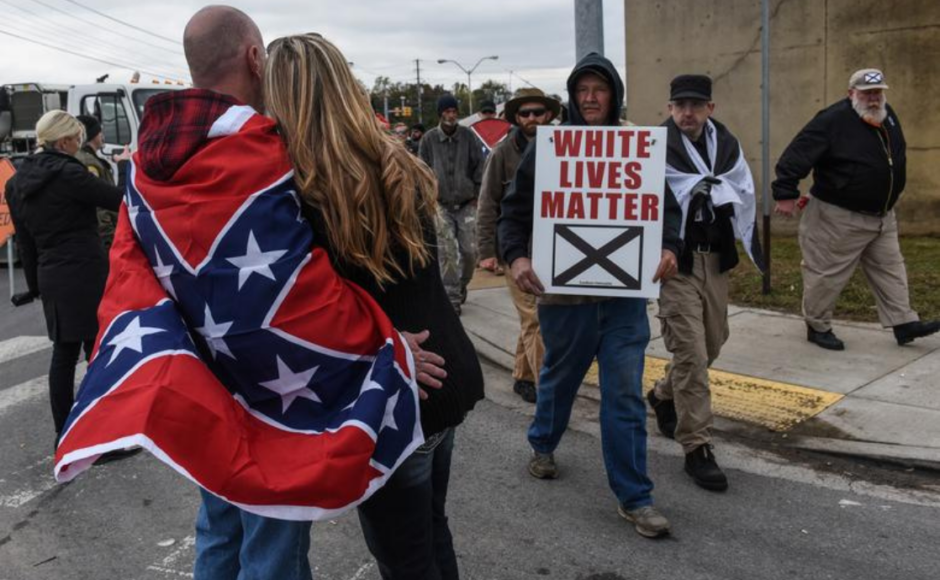
The senator concluded his remarks by observing, “Imagine the frustration, the irritation, the sense of a loss of dignity that accompanies each of those stops.” How many White people can even imagine being stopped for driving “too nice” a car because of the color of their skin?
Yes, racism has dominated recent headlines. How could it not, given the sheer number of young African American men killed in circumstances most of us can’t even imagine. Many of these deaths came after and in spite of America’s election of a biracial President.
Some saw Barack Obama’s presidency as evidence we had left racism behind. But it terrified many people who identified as “White” and caused a backlash openly encouraged by some in leadership and media. As a result of this seeming validation of racist views, a growing crop of new white supremacist groups, populated by young, well-armed men, have arisen to take the place of the KKK, adding the sheen of patriotism to their ideology. Racism of the intensely personal kind has pushed back into mainstream politics, and in the public forum people now say out loud what for decades they only whispered in private chat rooms.
Racism exists in this country today because of centuries of slavery, which became so central to our economy that we fought our nation’s bloodiest war over it. The familiar protest that the Civil War was fought over states’ rights belies the fact that slavery was always the fundamental “right” driving secession. Anyone who doubts this should read the Articles of Secession of those Confederate states that fought to withdraw from this less-than-perfect union.
Why did racism not die with the freeing of enslaved people, the signing of Constitutional amendments, the Civil Rights movement, or the election of a biracial president? Because in order to make slavery seem consistent with the professed religious beliefs of the majority of the population, it was necessary to dehumanize the enslaved.
Those who benefited from slavery had to convince themselves that the enslaved people they subjugated and their progeny weren’t fully human – that they were incapable of being educated and prospering outside the institution of slavery. These pervasive prejudices about dark-skinned people did not magically disappear when the Union won the Civil War or when Lincoln signed the Emancipation Proclamation or even when Congress made the Civil Rights Act the law of the land.
RELATED: Why Justice Is Needed in the Prison System
Why not? Because entire generations of Americans had been taught that dark-skinned people were “other” – inferior. This ingrained certainty is why the Civil War was followed by violent resistance and systematic attempts to deny Black people the constitutional rights White people assumed as a birthright.
So before we pronounce racism dead, we must make an effort to understand its insidious forms and how it warps the lives, not just of its victims, but of the perpetrators and their descendants. Consider what it means that the last miscegenation law forbidding marriage between Caucasians and people of color wasn’t struck down until 1967 – and that there are people alive in America today who believe those laws should be reinstated.
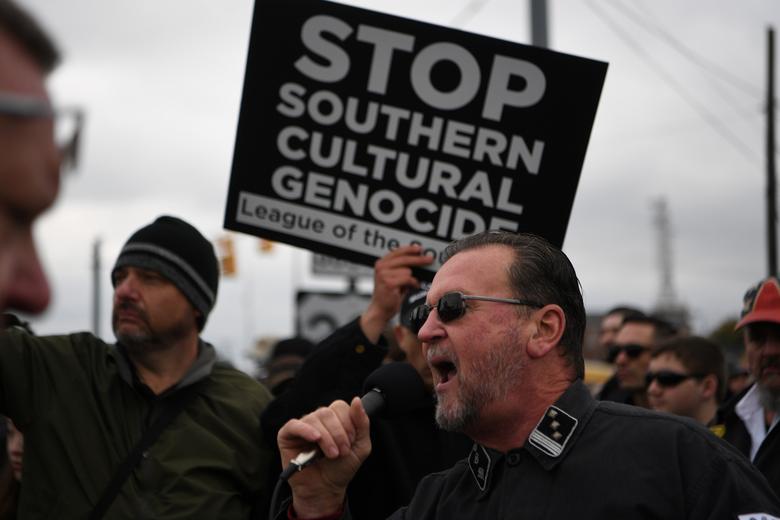
Declaring racism dead misses the point that light-skinned people of European descent control the reins of power in this country. This doesn’t mean that all “Whites” are better off than all “Blacks.” It means that Black people, as a group, face obstacles White people do not — obstacles put in place when those with darker skin were still enslaved. Can anyone imagine a Caucasian trading down to a cheaper car because they were repeatedly stopped by police officers who assumed they couldn’t possibly own it?
In today’s America, people of color are not standing beside their paler-skinned brothers and sisters on level ground. They are standing in a deep hole that our forebears — among them the founders of this nation — dug hundreds of years ago.
The people now sharing this nation may not be responsible for slavery, or prejudice, or redlining or police stopping people of color who drive nice cars, but we are responsible for what we do about those problems from here on out. Pretending racism doesn’t exist only allows it to continue and even thrive, and it turns a blind eye to the established fact that the American playing field is not level.
We are faced with choices: We can choose to see anti-racism protests and the Black Lives Matter movement and CRT, and all the programs we erroneously associate with it, as conspiracies perpetrated by an immensely powerful network of shadowy (ironically Caucasian) figures that we are powerless to control. Or we can choose to see them as a natural pushback against injustices that we can do something about.
The first option invites us to sit passively (and impotently), thinking that if only we stopped talking about racism, or the media stopped reporting on police shootings of Black people, if only the “Deep State” or X provocateur billionaire could be exposed, all our problems would cease. Option #1 might even cause us to waste precious resources fighting the wrong enemy.
The second choice empowers every one of us to do what we can in whatever small way we can to transform this culture and deny racism the fodder that keeps it alive: ignorance, prejudice, fear, and its firstborn, hatred. This choice offers us the real hope of healing a disease that plagues America more than any other nation.
Racism is a cancer. It infests our nation’s vital systems and destroys the individual lives of both victims and perpetrators. We are not powerless to heal systemic racism, but to pretend it no longer exists is like pretending the cancer in your lungs will not spread to other parts of your body if you simply refuse to talk about it. Whenever we see that kind of denial, we all need to do our best to eradicate it.
You May Also Like
Comments



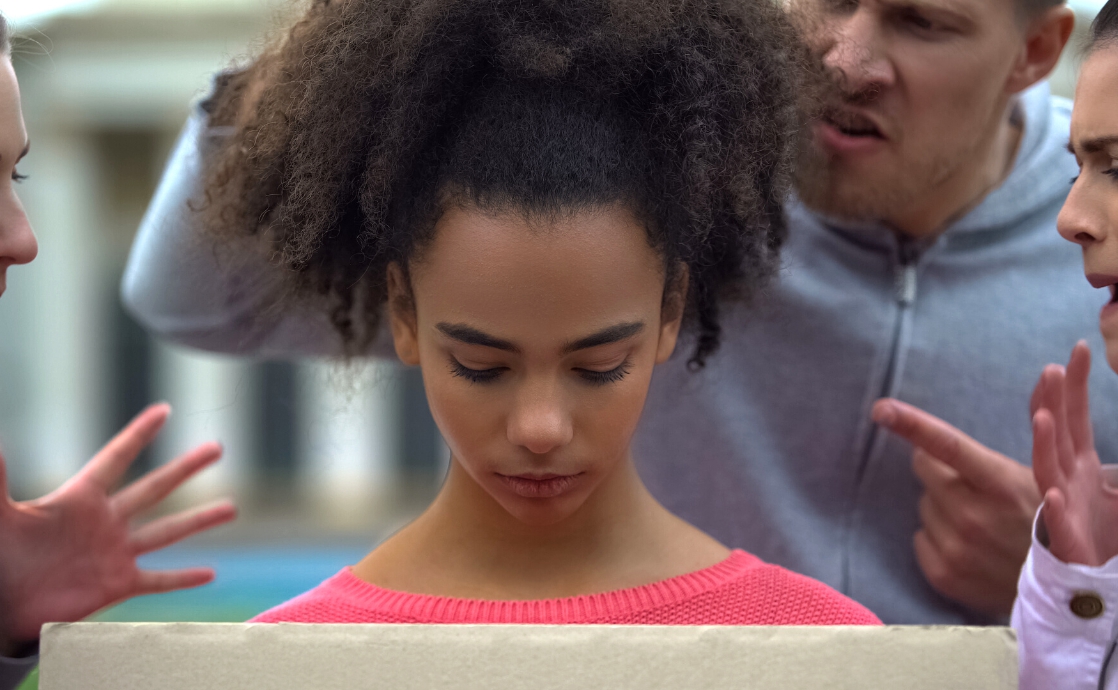

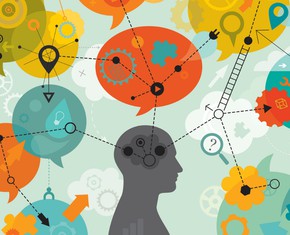




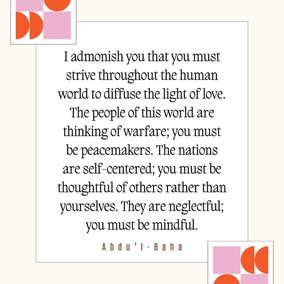
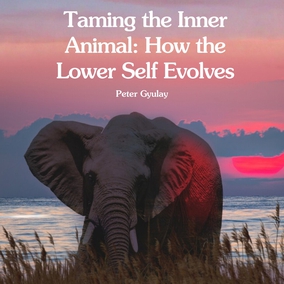
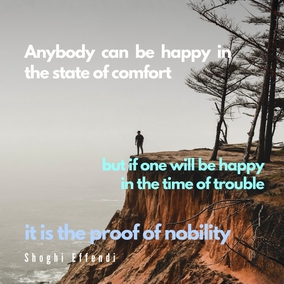
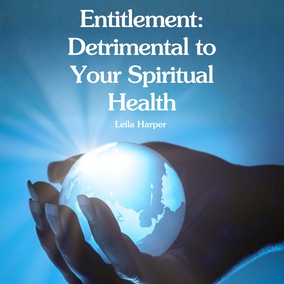
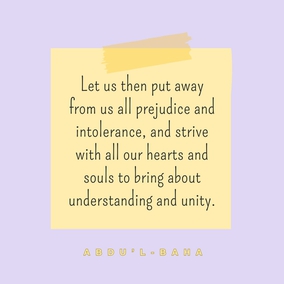
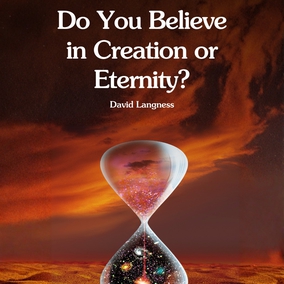

I suspect that may be the case as you also
support (laud) the highly contentious Critical Race Theory which informs the BLM. Indeed Ibram X Kendi (one of the main proponent of CRT) states “Whiteness prevents white people from connecting to humanity”. A more divisive ideology I struggle to imagine nor one more diametrically opposed to the tenets of the Faith. I am astounded that Baha’is and Baha’i organisations are so ideologically captured.
The Black Lives Matter movement has more and more been debunked as a hate-filled violence promoting grievance group whose most recent The almost immediate post after October 7 terrorist attack of innocent civilians was the BLM poster
glorifying the hang-gliding murderous entry into Israel. Or perhaps you think only blacks suffer racism.
by Isabel Wilkerson.
Racism is so deeply ingrained in our culture that we do not even recognize the roles we play in perpetuating it. This lack of awareness, of something so foundational, leads to the kind of denial you describe and at the same time further supports the caste system ensuring everyone stays in their place.